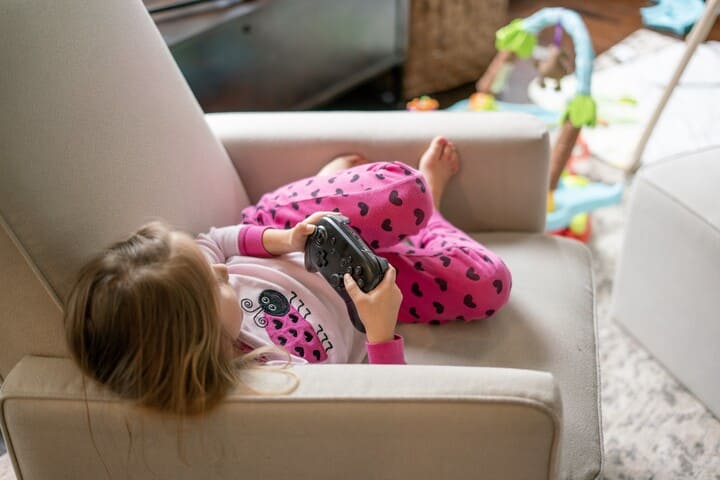Children Under 10 Should Play Only Under Parental Supervision, South African Censors Say
A new law in South Africa declares that no video game is fully appropriate for children under the age of 10, and with that, the definition of violence is significantly expanded.
1

In recent years, we've been hearing more and more about initiatives by individual countries trying to combat the negative impact of video games and the Internet on the youngest citizens. Just to mention China and its continuation of a 10-year child development plan that included streams and tips for content creators. This time, new rules have been announced by South Africa. They concern the age ratings of video games.
No video game is safe for kids
Last Friday, South Africa's Films and Publications Board made changes to the 40-page manual used by the censorship committee to evaluate all cultural works, including films and video games. This is the first change to these rules since 2019, when blasphemy in religious context was removed from aspects considered for age ratings.
According to the new rules the term of a video game suitable for children of all ages is to cease to exist, and players under the age of 10 will not be allowed to indulge in such entertainment without parental supervision. According to the Films and Publications Board, even video games marked with the lowest rating in the PG system may contain "elements disturbing or harmful for children."
This leads to absurd stipulations, suggesting that gamers aged 7-9 cannot independently play games with a 7-9 PG classification. Only titles in the 10-12 PG range are not supposed to pose a threat to the target group (i.e., 10-12 year olds).
The most controversial provision, however, is the absolute denial of the existence of video games suitable for everyone.

New definitions of violence
An important aspect here is the expansion of the definition of violence to include entirely new concepts. In addition to physical violence, the most obvious one, economic violence, intimidation, destruction of property or trespassing will start to be included under video game's assessment, as well as precise instructions and promotion of violence.
Even before the new rules were introduced in South Africa, games were also evaluated for the presence of domestic violence. Now its definition has been expanded to include one-night stand partners in addition to family members.
The changes also include multiplayer games, and in this case the provision appears to be heavily abstracted. According to the Films and Publications Board, intense competition is a form of aggression that will affect a video game's age rating.
In August South Africa will become one of the most restrictive places on earth in terms of age ratings for video games. The new law does not include a list of exceptions, so the modified rules will in theory prohibit children from playing even educational games without a guardian present. The expanded definition of violence is so broad and vague that virtually anything can fall under it. Only time will tell what the pros and cons of this system will be.
- Wuchang: Fallen Feathers censorship controversy sparks debate over how much games should change after launch
- Adult game developer’s PayPal funds held for over a month despite being legitimately sold on Steam
- Valve removes adult games from Steam under pressure from Visa and Mastercard, yet a title promoting Russian propaganda stays on
1

Author: Sonia Selerska
Began her professional writing adventure for Gamepressure.com in 2022, but she has always been interested in all forms of the written word. A student of Film and Multimedia with a specialization in Game Design and Development, deeply follows the blurring boundary between these two worlds. Sometimes, embarrassingly, appreciates style over substance. In the case of media, more often than not, goes to extremes; she can never choose between documentaries and horror films, and cozy games, life simulators, and animations. You will find her playing old-school consoles and indie gems rather than AAA titles. Devotes her free time to her love of fashion and art in a broader sense. Believes that the plot is the most crucial element of a game, and the most compelling stories are the ones inspired by everyday life.
Latest News
- „They get more hate than they deserve.” Josef Fares comes to EA's defense and points the finger at Sony and Nintendo
- They used to ban them, now they make money on them. Rockstar opens Cfx Marketplace with paid and free mods
- „I don't get you guys”. New Tower mode in Diablo 4 divides players
- Euphoria didn't last long. „New” footprint of Prince of Persia: Sands of Time Remake turned out to be a painful return to the past
- „It's crazy that 50% of you are lying.” GTA 6 fans faced a tough choice: half would do it without hesitation

